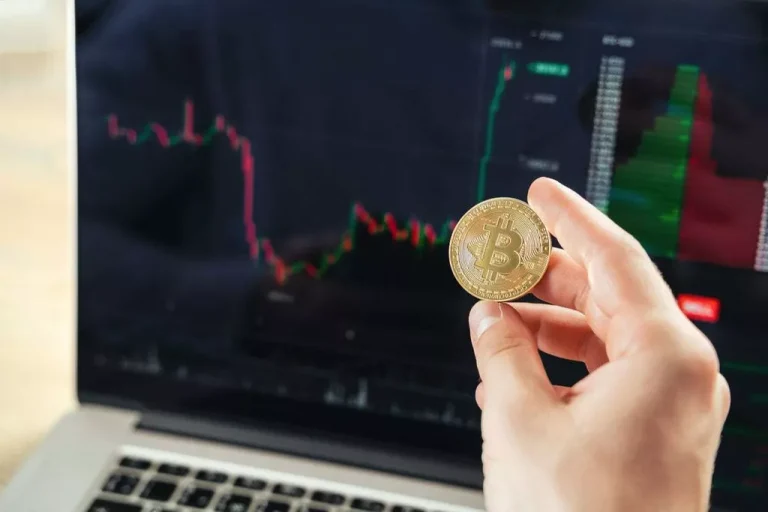Liquidity pools are a core element of automated market maker (AMM) techniques and enable the sleek operation of decentralized exchanges (DEXs). In a liquidity pool, customers contribute their belongings to create a collective pool of liquidity in trade for a share of the fees generated from buying and selling exercise throughout the pool. The property are typically paired and are used to facilitate buying and selling on the platform. Liquidity pools function by maintaining the value derived from multiplying the value of each assets fixed. You can consider it as a reservoir of funds that allows for decentralized, peer-to-peer buying and selling without the necessity for a centralized intermediary.
The improve in frequency and quantity of buying and selling helps to enhance market liquidity. There are at present over 200 cryptocurrency exchanges, 21 decentralized exchanges and a handful of peer-to-peer (P2P) platforms in existence right now. There are many different exchanges which are presently work-in-progress and due to launch within the close to future. Volume refers to the quantity of coins which have been traded in exchanges often prior to now 24 hours timeframe. Essentially, the quantity displays the market exercise of a selected coin; a higher volume indicates that more persons are buying and selling the cash.

The difference between the two is called a “price spread.” The “spread” should be tight (so purchaser and seller expectations should converge) in order for the market to be liquid. The purchase and commerce orders can be executed quicker on account of the elevated participation. All materials on this web site is intended for illustrative purposes and general data only.
What Do You Mean By Liquidity?
Another means of using liquidity in trading is to look for areas on the chart the place liquidity is expected to be. In different words, the place on the chart we are in a position to reasonably expect increased shopping for or promoting curiosity. Especially when the market liquidity is restricted, bigger players should push prices into those areas in order to get in or out of their positions. In addition to ATMs, debit and bank cards are more and more important in cryptocurrency.
- The key here is velocity because, in liquid markets, there's at all times someone prepared to purchase or sell your asset.
- If a market isn't liquid, then the method of getting into or exiting stated market becomes much more difficult.
- Excluding accounts receivable, as well as inventories and different current assets, it defines liquid property strictly as money or cash equivalents.
- Cash equivalents are short-term, extremely liquid investments that are readily convertible to cash.
- A clear stand by authorities on points like shopper safety and taxation could convey extra people out into the open to trade Bitcoin, which might affect its liquidity.
Alternatively, let’s say you personal an antiquity appraised at $75,000 – however there are not any patrons prepared to pay anything over $35,000. Cash refers to physical forex, similar to banknotes and coins, and deposits held in readily accessible bank accounts. It’s probably the most liquid form of investment because it can be used for quick transactions or simply transformed into different assets. Cash equivalents are short-term, highly liquid investments which are readily convertible to money.
Introduction To Liquidity
On the other hand, low-volume stocks may be harder to buy or promote, as there may be fewer market participants and due to this fact less liquidity. In different words, liquidity describes the degree to which an asset could be quickly purchased or bought in the market at a worth reflecting its intrinsic worth. Cash is universally thought-about probably the most liquid asset because it could most shortly and easily be converted into other belongings. Tangible assets, corresponding to real estate, fine artwork, and collectibles, are all relatively illiquid. Other monetary belongings, ranging from equities to partnership models, fall at various locations on the liquidity spectrum.
High-liquidity cryptocurrencies corresponding to bitcoin and ethereum, are inclined to have numerous energetic patrons and sellers. This means there's a greater chance of discovering someone to purchase or sell your cryptocurrency with out significantly affecting its worth. This will not be the case for an altcoin with a smaller market capitalization.
Liquid markets are deeper and smoother, while an illiquid market can put merchants in positions which would possibly be tough to exit. You can see that Bitcoin trading has fluctuated drastically since its introduction. Trading volumes are an essential consider determining liquidity within the cryptocurrency market. It refers back to the total quantity of digital property exchanged on a cryptocurrency change over a given interval. A common similarity among liquid property is that they all have a prepared and open market to be traded on.
Can Liquidity Change Over Time?
In change for providing liquidity, participants are rewarded with additional tokens. The function of providing these rewards is to incentivize individuals to contribute their property and help create a liquid market for buying and selling. A higher trade value signifies more trading activity (buying and selling), implying larger liquidity and market effectivity. In different words, a liquid cryptocurrency market exists when somebody is prepared to buy whenever you wish to see; and if you’re shopping for, somebody is prepared to promote. Liquidity is the convenience of converting an asset or security into money, with money itself being probably the most liquid asset of all. Other liquid belongings include shares, bonds, and different exchange-traded securities.

MTC has advertising relationships with a number of the provides listed on this website. MTC does try to take an inexpensive and good faith approach to maintaining objectivity towards providing referrals which liquidity meaning in crypto are in the most effective interest of readers. Liquidity refers again to the ease at which one can buy and promote cryptocurrency without having any vital impact on value of that asset.
For traders and traders, understanding and navigating liquidity could be the distinction between success and missed alternatives within the dynamic world of cryptocurrencies. Liquidity, in the realm of economics, refers again to the convertibility of belongings and obligations. In the context of cryptocurrencies, liquidity plays a pivotal function in figuring out the effectivity and stability of the market. For merchants and investors, understanding the significance of liquidity within the crypto market could be the key to making informed selections and maximizing returns.
Investors who add liquidity to the pool are referred to as LPs or liquidity providers. Their job is to maintain the flow of funds working for the pools in order to maintain the centralized change afloat. While the gold bar vendor has access to a big pool of patrons, the vendor of a soccer card could wrestle to get one. If it takes longer, the soccer card vendor could be prompted to promote the asset at a low value. This simply signifies that the shortage of patrons has depreciated the value of that asset.

In such circumstances, crypto traders’ participation in the market is considerably low because of the risks presented by volatility. If the market has assets that are troublesome to change for cash, it turns into “illiquid.” There shall be less investor participation, and the costs are susceptible to manipulation. Ideally, an asset’s change worth ought to mirror its intrinsic value and be succesful of fetch the proprietor an equal quantity in money on sale. So if a house costs $30,000 in the real property market, the purchase must get the proprietor an equal amount of money.
Low Vs High Liquidity
Increased market participation means increased liquidity, which could be a signal of increased market information dissemination. Cash is the most liquid asset, followed by cash equivalents, that are issues like cash market accounts, certificates of deposit (CDs), or time deposits. Marketable securities, similar to stocks and bonds listed on exchanges, are sometimes very liquid and may be bought rapidly by way of a broker.
If markets usually are not liquid, it turns into troublesome to promote or convert property or securities into cash. You may, for example, personal a really rare and useful family heirloom appraised at $150,000. However, if there could be not a market (i.e., no buyers) for your object, then it's irrelevant since nobody can pay anywhere close to its appraised value—it may be very illiquid. It might even require hiring an auction home to act as a dealer and track down potentially interested events, which will take time and incur prices.